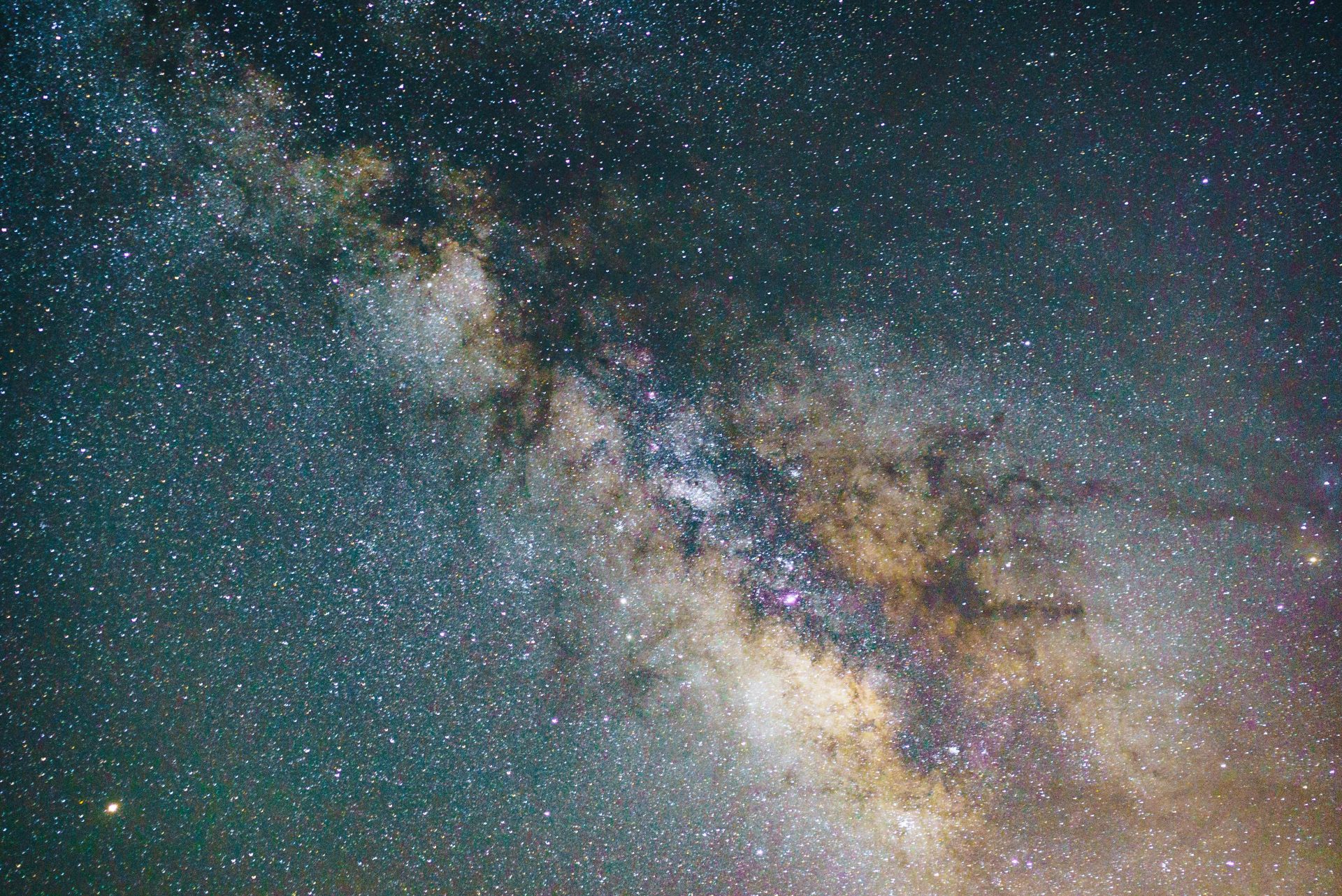When Does Consciousness Start? Understanding the Timeline

Hey there, amazing readers! 🖐️ Just a quick note: yes, we know there are a lot of ads here. Trust us, we get it—it’s not the prettiest look, but they help us keep this blog alive and kicking. Those pesky little ads cover the costs of all the behind-the-scenes magic, from hosting and tech stuff to creating content we hope you’ll love.
We’re committed to delivering quality posts, and your support (even just sticking around despite the ads) means everything to us. So, bear with us, and thanks for helping us keep the good vibes rolling. Now, on to the fun stuff! 😉
TRANSLATE BUTTON AT THE END OF THE ARTICLE
A Quick Overview
When we ponder the question, "When does consciousness start?" we enter an intriguing territory filled with scientific inquiry, philosophical musings, and rich human experience.
The quest for understanding consciousness is a journey that spans across disciplines, from neuroscience to psychology and even sociology.
This article will guide you through the timeline of consciousness, exploring its definitions, development stages, and the complex interplay between biology and environment.
Buckle up, because this is going to be a fascinating ride!
Introduction: The Fascinating Quest for Consciousness
Consciousness isn’t just a buzzword; it’s the very essence of our existence.
Imagine waking up each day, pondering your thoughts, and being aware of your surroundings.
But have you ever wondered when this delightful experience begins?
Is it during pregnancy, at birth, or later in infancy?
The truth is, consciousness is a slippery concept, and its origins are deeply tied to both biological development and environmental factors.
Throughout history, thinkers have wrestled with the nature of consciousness.
Is it a continuum that starts in the womb?
Or is it a sudden awakening at birth?
The answers remain elusive, but one thing’s for sure: understanding when consciousness starts offers a window into what it means to be human.
So, let’s unpack this mystery together!
Defining Consciousness: What Does It Really Mean?
Before we dive in, let’s clarify what we mean by consciousness.
At its core, consciousness is the state of being aware of and able to think about one’s own existence and surroundings.
However, it encompasses a range of experiences, from basic awareness to complex self-reflection.
Different scholars define consciousness in various ways:
Phenomenal consciousness refers to the raw experience of sensations and perceptions.
Access consciousness involves the ability to report or use information from our experiences.
Self-consciousness is the awareness of oneself as an individual, separate from the environment.
These concepts overlap and interact, making it challenging to pinpoint a single moment when consciousness "starts." Instead, it likely evolves gradually through various stages of development.
Theories of Consciousness: A Brief Overview
There are several theories attempting to explain consciousness and its origins.
Let’s look at a few prominent ones:
Global Workspace Theory: This theory posits that consciousness arises when information is made available to various cognitive processes.
Imagine a spotlight shining on specific thoughts while others remain in the shadows.
Integrated Information Theory: Here, consciousness is linked to the complexity and integration of information within a system.
The more interconnected the neural networks, the richer the conscious experience.
Higher-order Thought Theory: This suggests that consciousness requires a higher-order thought about a first-order experience.
In simple terms, you must be aware of your thoughts to truly be conscious.
Each theory sheds light on different aspects of consciousness but does not provide a definitive timeline.
It seems we must look beyond theories and into the actual development of individuals.
Early Development: When Does the Journey Begin?
The journey to consciousness begins much earlier than we might think.
Research indicates that key developments start in utero.
Brain Development: By around 24 weeks of gestation, the fetal brain is complex enough to support certain forms of awareness.
Neuronal connections begin forming, laying the groundwork for later consciousness.
Sensory Experiences: Fetuses can react to sounds and even taste amniotic fluid.
This suggests that some level of awareness may occur before birth.
Stimulation and Response: There are indications that an unborn baby can exhibit responses to external stimuli.
Kicking or moving in response to music or voices may suggest a rudimentary level of awareness.
While this doesn’t equate to full consciousness, it hints at a growing capacity for awareness that precedes birth.
The Role of the Brain: Wiring for Awareness
The human brain is a marvel of complexity.
As we develop, the brain undergoes significant changes that prepare us for conscious experience.
Neural Connections: The formation of synapses during early development is critical.
The brain creates more than a million new connections every second in the early years.
Cortical Development: The cerebral cortex, which plays a major role in conscious thought, continues to develop long into childhood.
This growth allows for more sophisticated levels of awareness.
Neuroplasticity: The brain’s ability to rewire itself based on experiences and learning keeps us adaptable.
This plasticity shapes how we experience and interpret the world around us.
Understanding how the brain develops helps illuminate the pathways leading to consciousness.
Prenatal Consciousness: Can Babies Perceive in the Womb?
The idea that babies can perceive their environment while still in the womb is captivating.
Research provides intriguing insights:
Auditory Perception: Fetuses can hear sounds and voices.
Studies show that babies can recognize their mother’s voice shortly after birth.
This connection underscores an early form of awareness.
Emotional Responses: There’s evidence that fetuses can react to maternal stress and emotions.
This suggests a primitive understanding of emotional cues, hinting at an early form of conscious experience.
Memory Formation: Some studies suggest that babies can remember sounds they heard in utero.
This memory may contribute to their initial awareness in the outside world.
While the extent of consciousness during prenatal development remains debated, these findings point to a fascinating potential for early awareness.
Newborn Awareness: First Glimpses of Conscious Thought
When babies enter the world, they bring a surprising amount of awareness with them.
Reflexes and Reactions: At birth, babies exhibit reflexive behaviors.
These are involuntary responses to stimuli, yet they lay the groundwork for future conscious actions.
Social Interaction: Newborns are equipped to engage with their caregivers.
They can recognize faces and respond to voices, indicating a rudimentary form of awareness.
Sensory Exploration: In the first weeks, babies begin to explore their surroundings through touch and sight.
This sensory engagement marks the beginning of conscious interaction with the world.
While newborns may not have fully formed consciousness, their awareness is evident through their interactions and responses.
Infant Development: Milestones in Conscious Awareness
As infants grow, their consciousness becomes more complex.
Each milestone in development reveals layers of awareness:
Visual Recognition: By around two months, infants can recognize familiar faces and objects.
This ability signifies increasing awareness of their environment.
Emotional Understanding: Babies begin to read emotional cues from caregivers, responding with coos, smiles, or cries.
This emotional intelligence is a crucial aspect of consciousness.
Cognitive Growth: By six months, infants engage in problem-solving and exploration.
They show curiosity about their surroundings, indicating a developing sense of self and agency.
Language Acquisition: As language develops, so does self-awareness.
Infants start to understand their identity in relation to others.
These milestones highlight the progressive nature of consciousness, evolving from simple responses to complex interactions.
The Influence of Environment: Learning and Growing
The environment plays a significant role in shaping consciousness.
Experiences, interactions, and cultural contexts contribute to the development of awareness.
Parental Interaction: Responsive caregiving fosters secure attachment, promoting emotional and cognitive growth.
A nurturing environment encourages exploration and learning.
Socialization: As infants grow into toddlers, social interactions become paramount.
Engaging with peers and caregivers enriches their understanding of self and others.
Cultural Context: Different cultures emphasize various aspects of consciousness.
For instance, collectivist societies may encourage a sense of shared identity, while individualistic cultures focus on personal achievement.
Ultimately, the environment is a vital catalyst for developing and enhancing consciousness.
Cultural Perspectives: How Different Societies View Consciousness
Cultural lenses shape how we perceive consciousness and its origins.
Let’s explore some diverse perspectives:
Eastern Philosophies: In many Eastern traditions, consciousness is viewed as interconnected with the universe.
The idea of mindfulness emphasizes awareness of the present moment.
Western Models: In contrast, Western thought often focuses on individual consciousness, emphasizing self-awareness and personal identity.
Indigenous Beliefs: Indigenous cultures often view consciousness as a communal experience, intertwined with nature and ancestral spirits.
These varied perspectives invite us to consider consciousness as a multifaceted concept, influenced by culture, history, and beliefs.
Research Advances: What Science Tells Us Today
The scientific understanding of consciousness is evolving at a rapid pace.
Recent advancements in research have provided fresh insights:
Neuroscientific Studies: Brain imaging technology enables researchers to observe neural activities linked to consciousness.
These studies help map out how consciousness emerges from brain function.
Developmental Psychology: Longitudinal studies track cognitive and emotional development, revealing patterns in the formation of consciousness throughout childhood.
Interdisciplinary Approaches: Collaboration among fields like psychology, neuroscience, and philosophy has enriched the study of consciousness, fostering a more comprehensive understanding.
While no definitive answer exists, ongoing research continues to illuminate this fascinating subject.
Conclusion: Embracing the Mystery of Consciousness
In the end, the question of when consciousness starts remains complex and layered.
From prenatal awareness to the nuanced experiences of toddlers, consciousness emerges through a combination of biological, environmental, and cultural factors.
One thing is certain: consciousness is a captivating journey.
Every discovery we make unfolds new layers of wonder.
As we navigate this intricate web of awareness, let’s celebrate the incredible journey of consciousness—both in ourselves and in the little ones we cherish.

The Enlightenment Journey is a remarkable collection of writings authored by a distinguished group of experts in the fields of spirituality, new age, and esoteric knowledge.
This anthology features a diverse assembly of well-experienced authors who bring their profound insights and credible perspectives to the forefront.
Each contributor possesses a wealth of knowledge and wisdom, making them authorities in their respective domains.
Together, they offer readers a transformative journey into the realms of spiritual growth, self-discovery, and esoteric enlightenment.
The Enlightenment Journey is a testament to the collective expertise of these luminaries, providing readers with a rich tapestry of ideas and information to illuminate their spiritual path.
Our Diverse Expertise 🌟
While our primary focus is on spirituality and esotericism, we are equally passionate about exploring a wide range of other topics and niches 🌍📚. Our experienced team is dedicated to delivering high-quality, informative content across various subjects ✨.
To ensure we provide the most accurate and valuable insights, we collaborate with trusted experts in their respective domains 🧑🏫👩🏫. This allows us to offer well-rounded perspectives and knowledge to our readers.
Our blog originally focused on spirituality and metaphysics, but we’ve since expanded to cover a wide range of niches. Don’t worry—we continue to publish a lot of articles on spirituality! Frequently visit our blog to explore our diverse content and stay tuned for more insightful reads.





